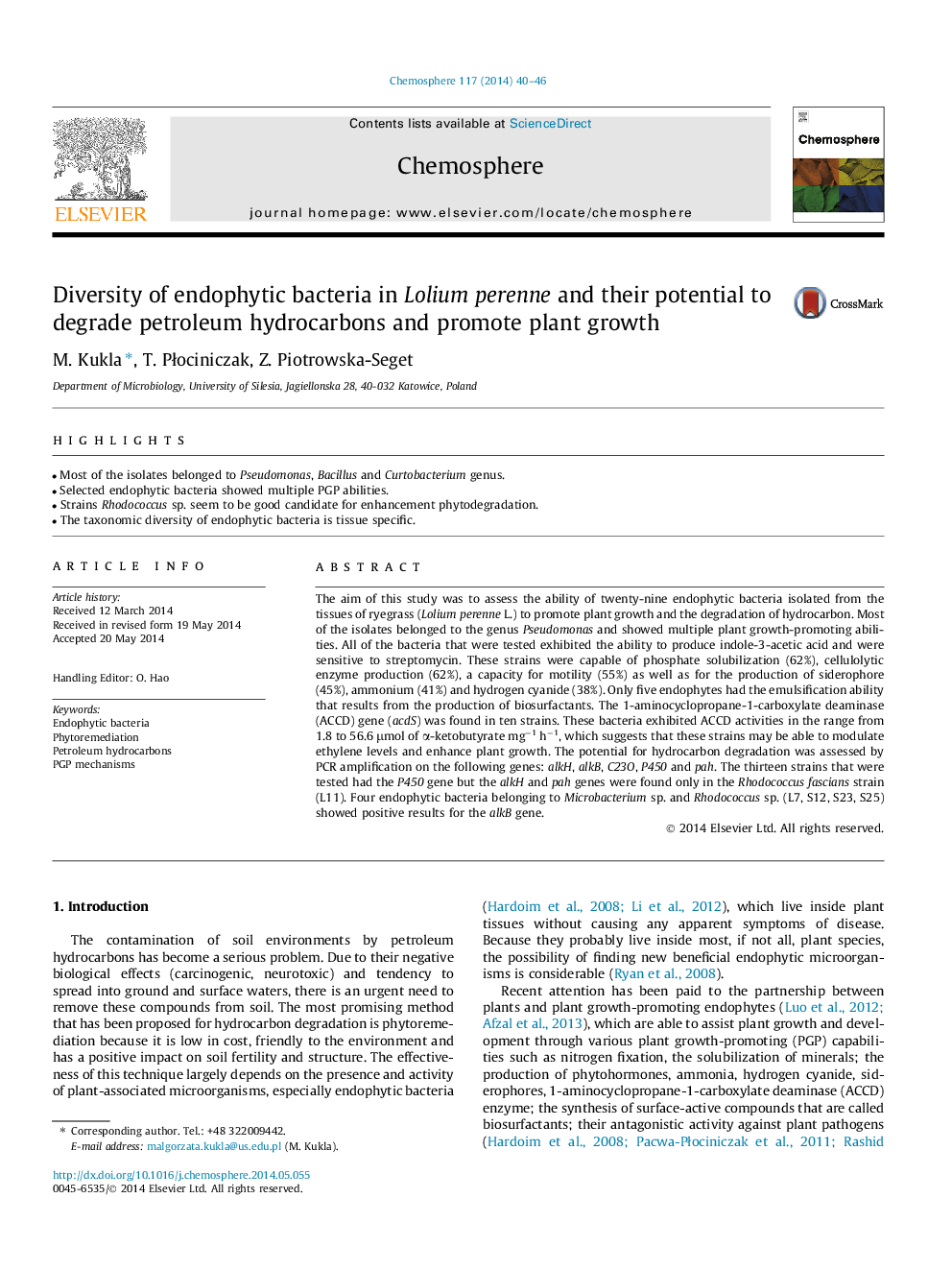| Article ID | Journal | Published Year | Pages | File Type |
|---|---|---|---|---|
| 6308399 | Chemosphere | 2014 | 7 Pages |
Abstract
The aim of this study was to assess the ability of twenty-nine endophytic bacteria isolated from the tissues of ryegrass (Lolium perenne L.) to promote plant growth and the degradation of hydrocarbon. Most of the isolates belonged to the genus Pseudomonas and showed multiple plant growth-promoting abilities. All of the bacteria that were tested exhibited the ability to produce indole-3-acetic acid and were sensitive to streptomycin. These strains were capable of phosphate solubilization (62%), cellulolytic enzyme production (62%), a capacity for motility (55%) as well as for the production of siderophore (45%), ammonium (41%) and hydrogen cyanide (38%). Only five endophytes had the emulsification ability that results from the production of biosurfactants. The 1-aminocyclopropane-1-carboxylate deaminase (ACCD) gene (acdS) was found in ten strains. These bacteria exhibited ACCD activities in the range from 1.8 to 56.6 μmol of α-ketobutyrate mgâ1 hâ1, which suggests that these strains may be able to modulate ethylene levels and enhance plant growth. The potential for hydrocarbon degradation was assessed by PCR amplification on the following genes: alkH, alkB, C23O, P450 and pah. The thirteen strains that were tested had the P450 gene but the alkH and pah genes were found only in the Rhodococcus fascians strain (L11). Four endophytic bacteria belonging to Microbacterium sp. and Rhodococcus sp. (L7, S12, S23, S25) showed positive results for the alkB gene.
Related Topics
Life Sciences
Environmental Science
Environmental Chemistry
Authors
M. Kukla, T. PÅociniczak, Z. Piotrowska-Seget,
